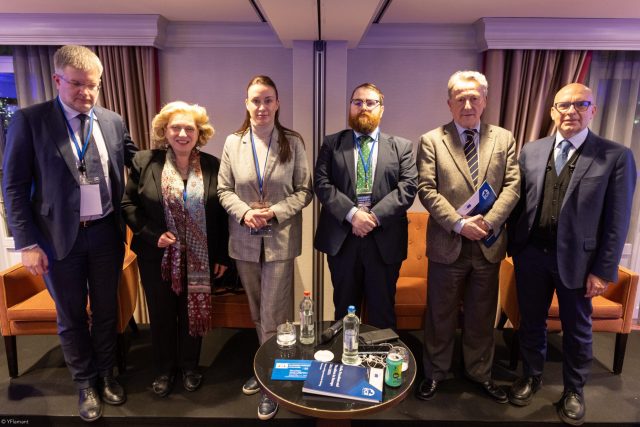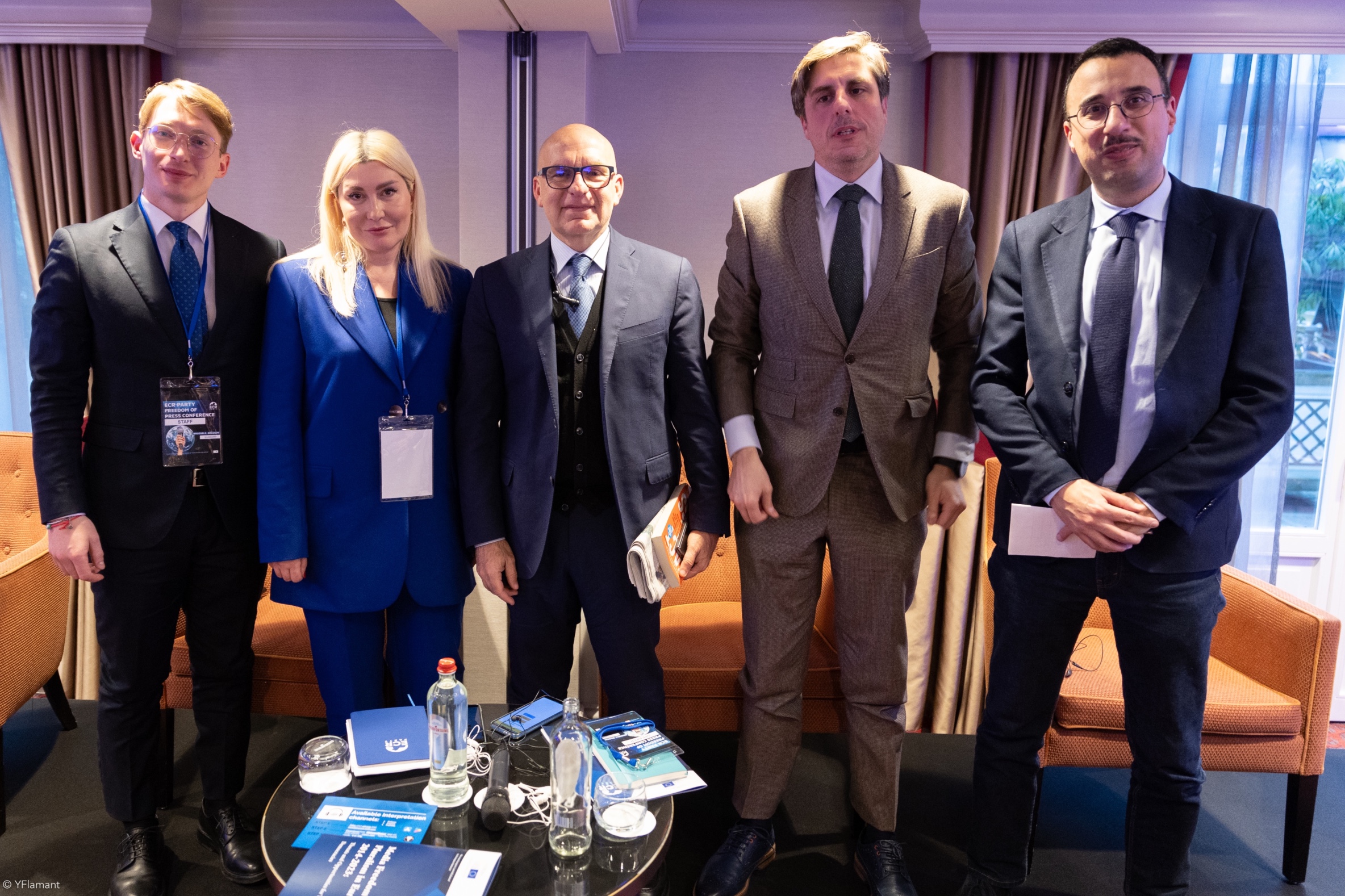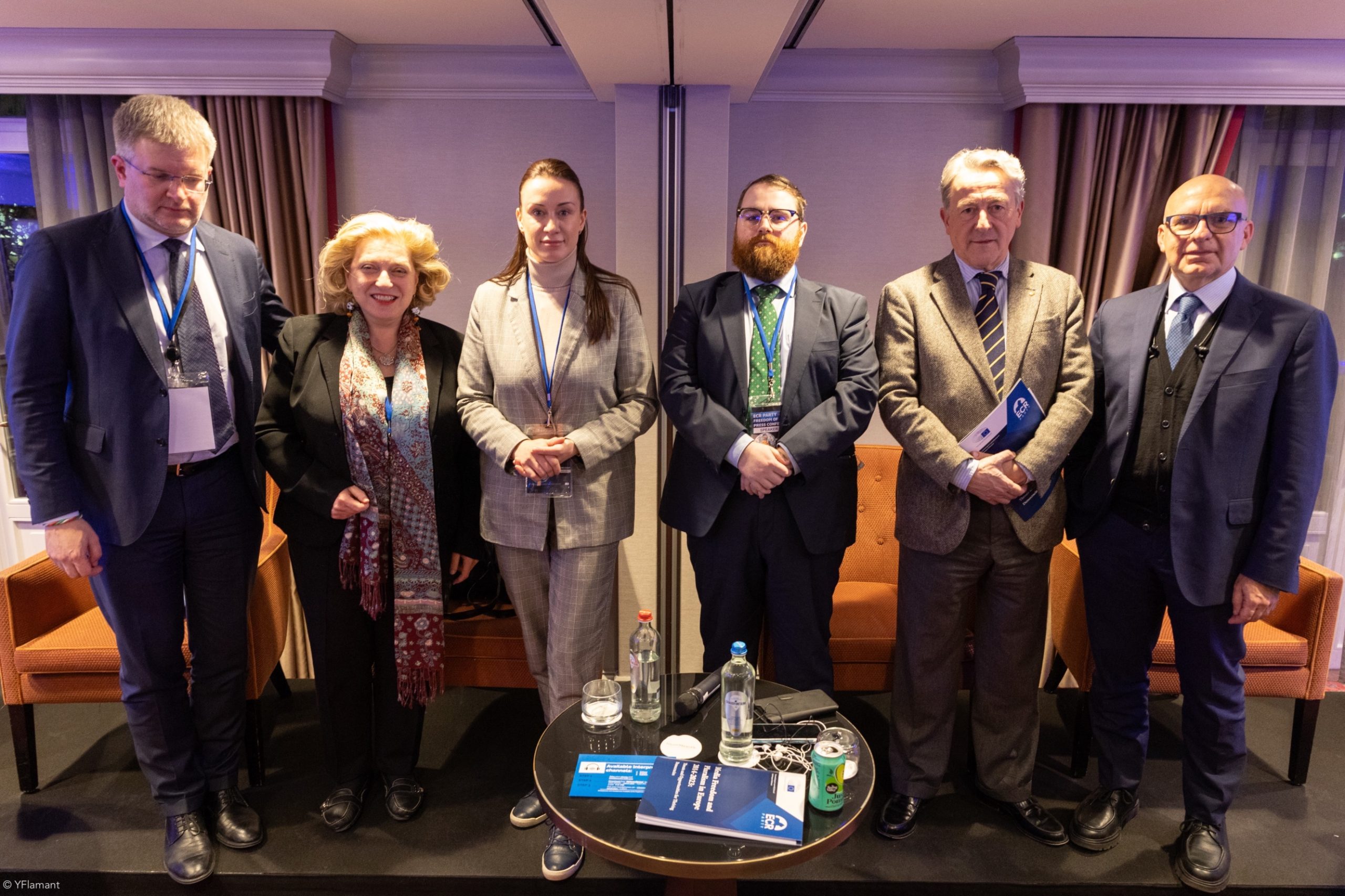
Trends in Europe and Worldwide to Counter Fake News and misinformation
In mid-January, the ECR Party-sponsored conference on press freedom took place in Brussels. The central theme was crucial in light of the upcoming campaign for the European elections in June 2024, especially due to the difficulty in finding genuinely “free” information.
Among the topics discussed were instances of information “contamination,” wartime strategies conducted through the media, and the obstacles journalists face in their work, risking assaults, imprisonment, or worse. This also included the growing role of artificial intelligence in the world of mass communication.
The role of social media was particularly important. Originally designed to bring people together, they are transforming into tools for easy, misleading political propaganda, especially targeting the younger population but with implications for the older demographic as well. Even requesting corrections in cases of deliberately false information often falls short. It is challenging to erase the media target even after the issuing of apologies by the journalistic outlet that published inaccuracies.
Europe is not exempt from serious information problems. A report conducted and published by the ECR Party reveals that between 2014 and 2023, 50 journalists were killed, including the editors of Charlie Hebdo murdered during the January 2015 attack. In that year, France ranked as the second country in the world for journalists killed.
Notable incidents occurred in 2017 with the killing of Maltese journalist Daphne Caruana Galizia, shot after revealing politicians’ involvement in the Panama Papers scandal. Another instance was the murder of journalist Jan Kuciak and his girlfriend after investigating ties between the Fico government and some Italian ‘Ndrangheta groups. In 2021, in the Netherlands, Peter de Vries was killed after supporting witnesses in a trial against Moroccan-Dutch organized crime.
The Brussels event saw the participation of a large international delegation from Armenia, France, Moldova, Romania, Germany, Ireland, Italy, Poland, and beyond. It began with a roundtable hosted by the ECR group at the European Parliament, featuring co-President Nicola Procaccini (FdI), MEP Jorge Buxade, Party Secretary-General Antonio Giordano, and MEPs Ilcic (HR), Ross (NL), De La Pisa Carrión (SP), and Tertsch.
“There is often a deletion of voices non-conforming to the mainstream for silencing, through mutual reinforcement,” Procaccini stated during the roundtable. However, he added that the mainstream has lost ground, as common sense and free expression of thought through other media have propelled the center-right to success almost everywhere. “I believe – he concluded – that it will not always be possible to suppress our point of view, especially where we can express it intelligently.”
 The first panel, moderated by Maicol Pizzicotti Busilacchi, International Secretary of the youth movement of Fratelli d’Italia, focused on press freedom at the European and international levels. The panel included Party Secretary-General Antonio Giordano (FdI), Ludmila Belcencova, the Moldovan President of Stop Media Ban, Jorge Martín Frías from the Spanish foundation “Disenso,” and Italian journalist Antonio Rapisarda.
The first panel, moderated by Maicol Pizzicotti Busilacchi, International Secretary of the youth movement of Fratelli d’Italia, focused on press freedom at the European and international levels. The panel included Party Secretary-General Antonio Giordano (FdI), Ludmila Belcencova, the Moldovan President of Stop Media Ban, Jorge Martín Frías from the Spanish foundation “Disenso,” and Italian journalist Antonio Rapisarda.
“I find it very important to discuss everything that contaminates information and undermines its quality. We have focused on emerging issues related to press freedom and freedom of expression,” commented SG Antonio Giordano. Belcencova, leading “Stop Media Ban,” addressed the audience by speaking about the challenges independent journalists face in Moldova, addressing media repression and analyzing situations across Europe.
The next panel, moderated by the journalist Anne Elisabeth Moutet from “The Telegraph” in France, debated the influence of foreign actors on press freedom and the upcoming European elections, crucial for powers like the United States, Russia, and China. Panelists included MEPs Carlo Fidanza (FdI) and Herman Tertsch (Vox), a human rights lawyer and member of “Stop Media Ban” Natalia Bayram, and Gary Kavanagh, Director of the Edmund Burke Institute.
 Carlo Fidanza outlined the main aspects of the Digital Service Act, a tool that could ensure greater protection of freedom of expression on social media, preventing censorship by their owners. Fidanza emphasized external interference in electoral campaigns and internal interference by NGOs. Although the regulation might be postponed until after the elections, he affirmed that safeguarding electoral campaigns is necessary. He also touched on artificial intelligence, a powerful tool but one that can lead to the production of “deep fakes” and a revolution in the job market.
Carlo Fidanza outlined the main aspects of the Digital Service Act, a tool that could ensure greater protection of freedom of expression on social media, preventing censorship by their owners. Fidanza emphasized external interference in electoral campaigns and internal interference by NGOs. Although the regulation might be postponed until after the elections, he affirmed that safeguarding electoral campaigns is necessary. He also touched on artificial intelligence, a powerful tool but one that can lead to the production of “deep fakes” and a revolution in the job market.
In addition to the dynamics already explained, there are also elements such as the economic crisis – which therefore induces the media to survive based on the number of clicks rather than the quality of the information provided – in addition to the complex social dynamics that are causing the information system to go into crisis.
The increase in threats and violence towards journalists, the concentration of the media market restricting pluralism, and progressive political control over editorial boards thus undermining self-regulation show a worrying picture for the European press, posing another challenge that ‘ECR wants to win.
Having personally participated in this event, I can only state that the problems of information concern the entire population and see a clear distinction: on the one hand the Left is committed to demolishing the opinion of others, attacking not even what is said but who he says it; on the other hand, the conservative Right which believes in discussion, debate and the freedom to express one’s thoughts and accept those of others without preconceptions, putting the reality of the facts before their personal vision. A free Europe is built by uniting the consciences of free Europeans aware of what is happening, so freedom of the press must be a key point from which to begin building a new Europe.



 Subscribe
Subscribe